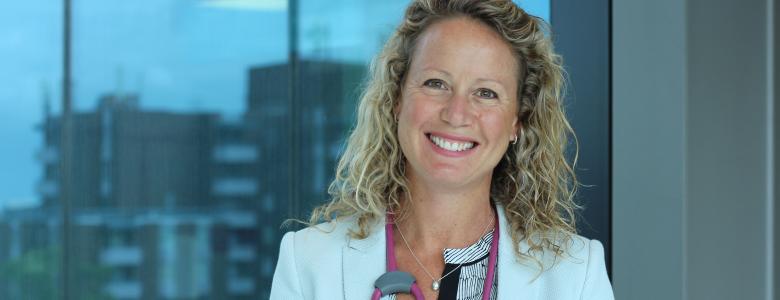Guest editorial: Associate Professor Margie Danchin

Welcome to the March edition of the Melbourne Medical School (MMS) newsletter. These are extraordinary times, especially as so many of us in the MMS community are at the frontline of the pandemic response. The expertise resident within our School and Faculty is impressive with many of our colleagues making contributions beyond their workplaces to the public domain. It has also been heartening to witness the overwhelming response by our students indicating their willingness to take part in the Student Assistance in Supporting Healthcare (SASH) joint effort by Victoria’s universities to support the health system as it prepares for a surge in COVID-19 cases.
While the bulk of this edition was compiled before the pandemic took centre stage in our lives, and so much has happened since then, we hope the items are a reminder of the important work and achievements which are continuing to be made by the remarkable and committed staff within the School.
I was pleased to be asked to be the guest editor of this edition as I wanted to share with you a major strategic initiative within the School to boost the ranks of clinician researchers. Late last year, I was appointed to the new role of Director of Clinician-Scientist Pathways within the MMS. This role has given me the opportunity to engage with the wider University community, separate to the Melbourne Children’s Campus where I work. My brief includes the development of supported pathways for clinician researchers both while they are enrolled in the Doctor of Medicine (including opportunities to pursue a range of other qualifications such as a Doctor of Philosophy, Master of Public Health, Master of Engineering, Juris Doctor) and during the specialist clinical training years (with transition pathways to post-doctoral fellowships). Together with my colleagues in medical education and graduate research, we are aiming to enhance the research experience for all our MD students but also to create new possibilities such as the MD-PhD pathway for highly motivated students interested in research. We are also looking to create supported PhD pathways for clinician scientists during speciality training in partnership with the MACH, linked to attaining highly competitive post-doctoral fellowships. Ultimately, through these and a range of other initiatives we are developing, we want to highlight the diversity of possible clinician-scientist career paths early, and to really light that fire in students to attain the skills to turn their clinical insights into evidence that informs practice. Clinician-scientists are an endangered species, yet they collectively account for 37 per cent of Nobel Prizes in Physiology or Medicine.
This edition includes a rundown of our International Women’s Day event for our first-year MD students, featuring four MMS women sharing their diverse and inspiring experiences. I am particularly passionate about supporting women to pursue and reach the highest levels in clinical research. To do this, we need to ensure robust mentorship, sponsorship and the creation of flexible and inclusive workplaces for both men and women.
We also include some behind the scenes content on Flesh After 50, Professor Martha Hickey’s photo project that tackles perceptions of women and ageing; profiles of Associate Professor Natalie Hannan and Dr Vanessa Cropley; and work by the Phoenix Australia Centre on bushfire trauma and men’s anger.
Along with the structural impediments that women in medicine face, desktop research by the ABC shows that women are less likely to put themselves forward as media talent. There’s a new tool to help you promote your expertise and enhance your capacity to share your work: the Australian Academy of Science has developed a directory in partnership with the CSIRO, Science & Technology Australia, and the Australian Science Media Centre. By uploading your profile, you can be tapped on the shoulder for opportunities including speaking engagements, committee memberships and mentoring.
Lastly, I’d like to extend congratulations on behalf of the MMS to the numerous recipients of Australia Day awards, including alumn Dr Bronwyn King, the founder of Tobacco-Free Portfolios, who headlined the University’s inaugural Bachelor of Biomedicine and Bachelor of Oral Health Commencement Ceremony in February.
During this unprecedented time I hope you all remain safe and healthy over the coming months. Look after yourselves and please don’t hesitate to access the numerous University resources available to support you through the coming months as we learn to live with COVID-19. Please remember to access the important staff information that is available through Staff Hub, the Faculty’s monthly newsletter and the regular updates from the Dean, Professor Shitij Kapur. And lastly just a reminder that you can book an appointment to get your flu vaccine through the Staff Hub, which is more important than ever this year for you and your family during the COVID pandemic.